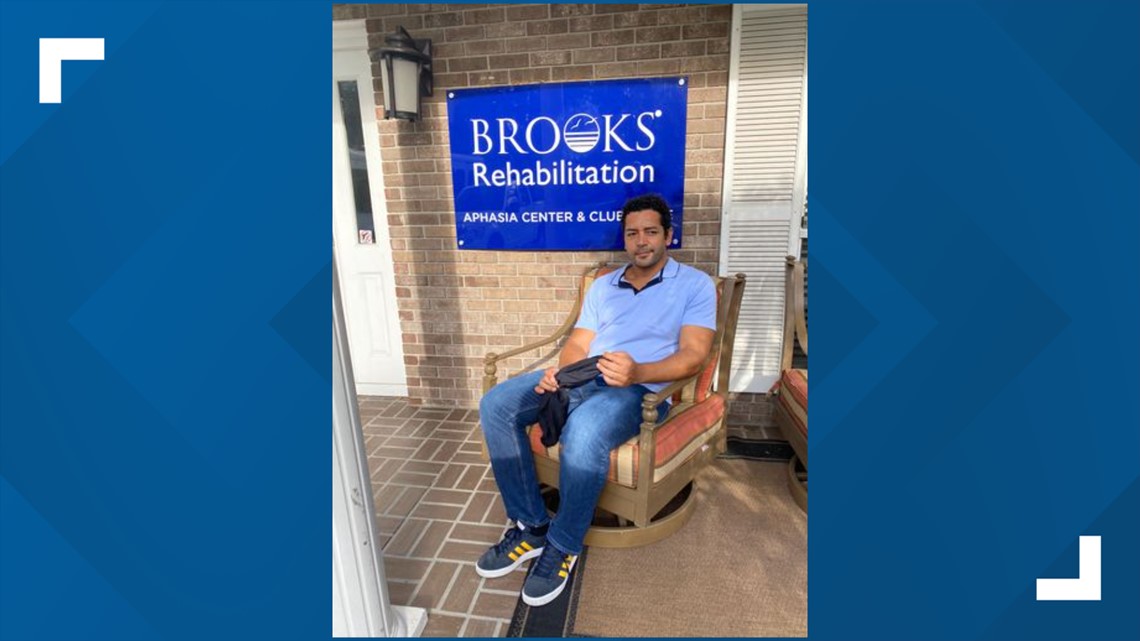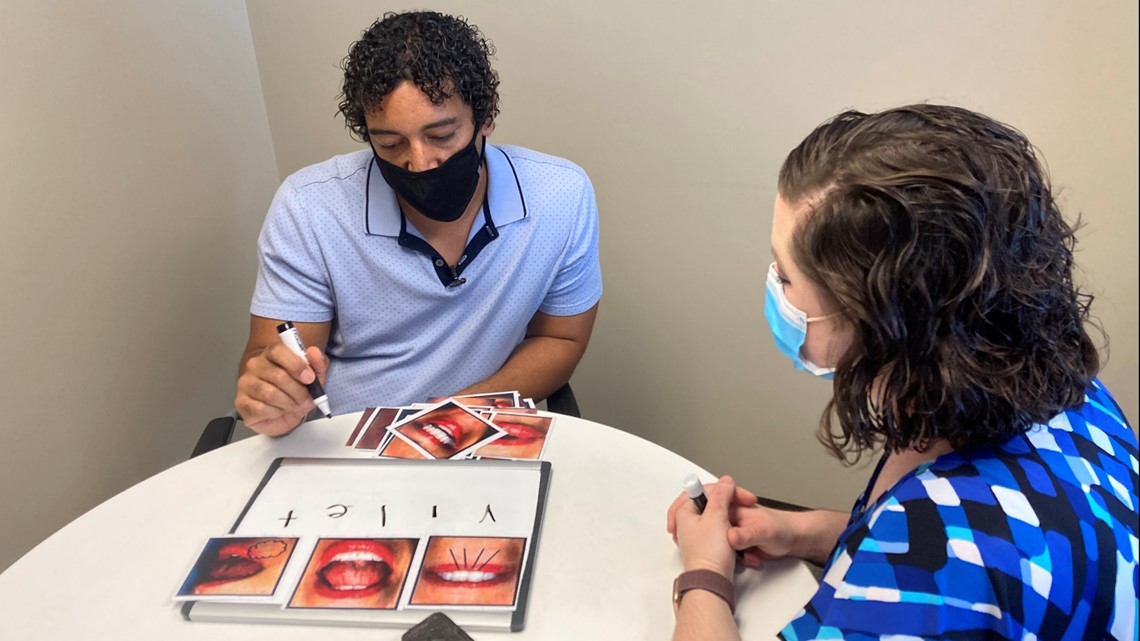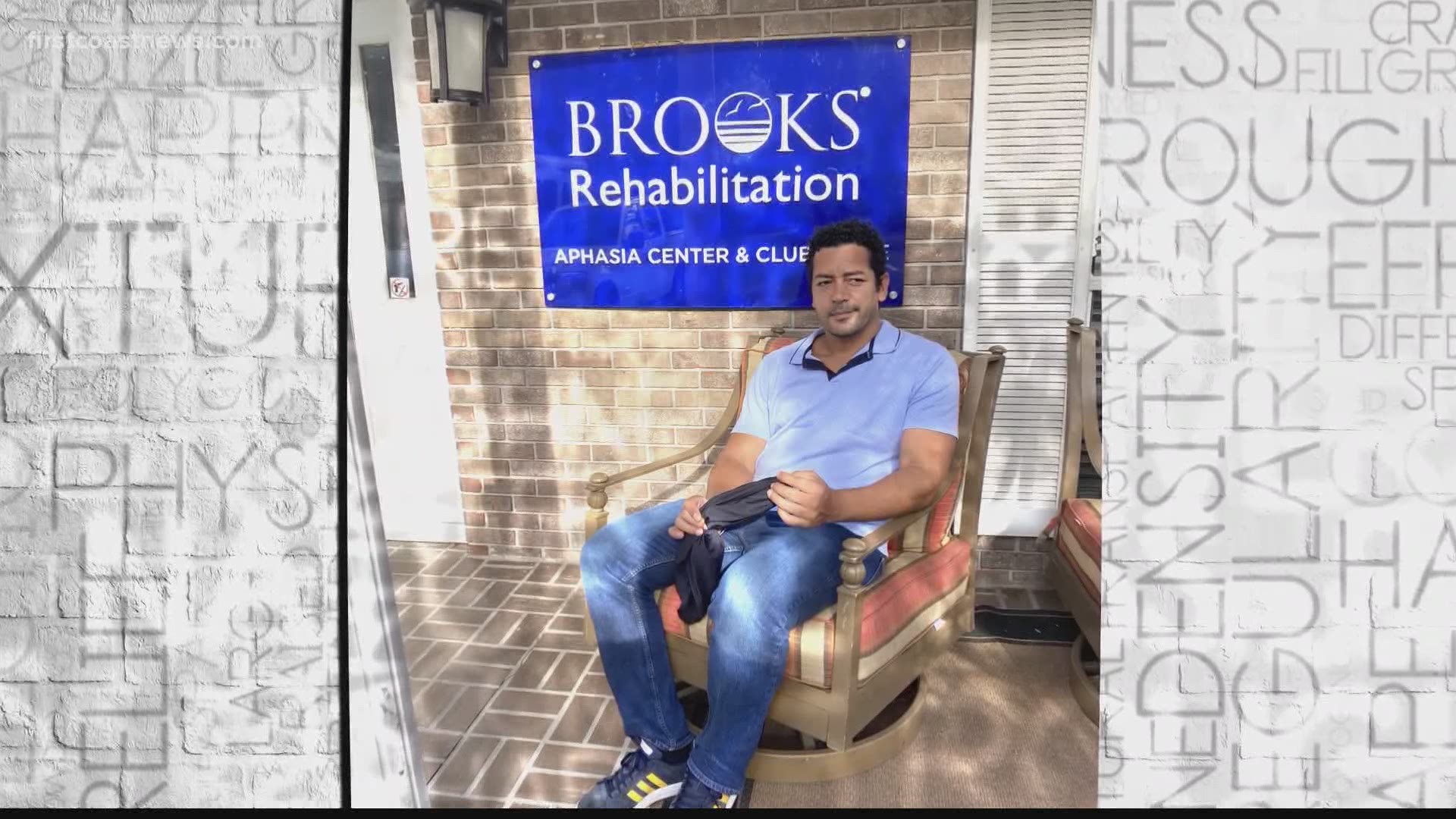JACKSONVILLE, Fla. — Aphasia is a condition that affects more than two million people, according to the National Aphasia Association, yet many people have never heard of it. Now, a stroke survivor is on a mission to change that.
Coleman Watson built a career around words. A patent attorney, he opened his own law firm and litigated hundreds of cases. His wife, Jessica Zambrano, said he passed the bar on the first try in not only Florida but also Georgia, New York and California.
"He's definitely very driven," Zambrano said.
That drive is helping him conquer a new challenge. One that began unexpectedly at the age of 41 just a month before the pandemic started.


"I knew something was a little off," Watson said. "My neck was really hurting."
What he didn't know was his whole world was about to change. It turned out he had a sudden cryptogenic stroke.
"In that moment I really nearly thought I was dying," Watson said.
His stroke left him with a language disorder called aphasia. It affects a person's ability to communicate.
"When I had my stroke and I lost my words, it was so frustrating,"
"I saw him and his face was blank, but he looked normal," Zambrano said. "But then when the doctors were asking him questions, the only thing he could say was 'Yes'."
Over the past year, he worked hard to relearn how to read, write, and understand language. Before his stroke he was teaching his young daughter how to read. Now she is helping teach him.
"I always say, imagine, if you were going to a foreign country like Japan and you get there and you still have your thoughts. You're still just as smart, but you can't understand what people are saying," Kayla Fouraker explained. "People can't understand you, and you can't read or write over there. You feel very lost even though cognitively you're just as fine as you were before."
Fouraker, is a speech therapist at Brooks Rehabilitation Aphasia Center in Jacksonville. People from around the world come to the center for therapy. She worked with Coleman during two six-week intensive programs.


"Our goal is to reintegrate people with aphasia back into the community and help them live successfully," Fouraker said. "He's made in my opinion, miraculous strides."
The therapy is centered around what Fouraker calls a "life participation approach". For Watson, an attorney, that means reading and using a lot of vocabulary related to law.
"We use a lot of treatments centered around creating sentences, rebuilding that grammar in that speech, and a lot of conversation," Fouraker said. "So as you saw, Coleman was using that whiteboard. You saw me motioning for him to use it, and using those supports can really enhance someone with aphasia, their language, and help them to live more successfully. So that was really the goal."


Watson's wife sees him put into practice what he learned during therapy.
"It's trying to find the right words in his mind when he can't either get the word out or remember how to say them," Zambrano said. "When he's trying to say a word, he has pictures of people's mouths, like making the 's' sound or the 't' sound. So in his mind, if he can't say a word, he's putting together the pictures and spelling it so that he can make his mouth produce it."
While aphasia has changed Watson's life, it has not impacted his intelligence.
"That's a big thing that people need to understand about aphasia is that it doesn't affect their intellect," Fouraker said. "So they're still the same smart person that they were before. That's not affected. It's purely that language center."
Watson is now focused on making a documentary to raise awareness about aphasia. He posted a trailer on YouTube.
"Right now I'm trying to pitch it to Netflix," Watson said.
He is also seriously considering a run for U.S. Senate. He plans to use his passion for healthcare reform to make sure others can get the care they need.
"To see someone who can't even say his name and then a year later is telling you he's running for Senate and is making a film, taught himself filmmaking, that's not something I'm used to seeing as a therapist. It just it motivates me," Fouraker said.
Watson hopes his journey inspires others to never lose hope.
"My story, it is a story that could be anyone," Watson said. "I know that my speech is not perfect. I know the reason that I can talk right now is because I'd never lost hope."
To learn more about aphasia visit the Brooks Rehabilitation Aphasia Center.

